Media
Contact Us
- Home
- Who We Are >
- What We Do >
- Investors >
- Sustainability >
- Media
- Working for Us >
- Contact Us
The United Nations has identified 17 key challenges facing the world today. These include enormous issues like tackling climate change and poverty across the globe.

Compass’ sustainability strategy ensures that our focus is on contributing to nine of the SDGs.
Of the 17 goals designed to help deliver the 2030 vision for a more sustainable planet, we have identified nine where we believe we can make the most positive social impact. We recognise the critical importance of working in partnership, supported by SDG 17 (Partnerships for the Goals).
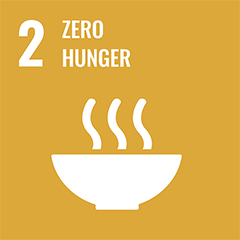
Goal 2
2.1 End hunger and ensure access to safe, nutritious and sufficient food
2.4 Ensure sustainable food production and resilient agriculture
Our Contribution
As a food business, one of the most powerful ways that we can support our local communities is by providing meals. All around the world, we have formed partnerships with local projects, charities and organisations which donate or serve meals to those in need, or pass on our surplus unsold food to the people who need it.
We are committed to procurement with purpose, meaning that we use our buying power to support and promote the fair treatment of people and animals, sustainable resource use, and regenerative agricultural practices. We aim to deliver a global deforestation-free and land conversion-free supply chain strategy and are increasing the volume of sustainable palm oil, soy, beef, and timber and paper materials in the products that we source globally.
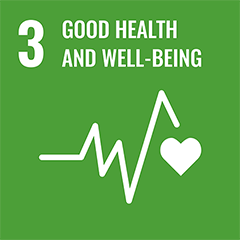
Goal 3
3.4 Reduce premature mortality through prevention and treatment and promote mental health and wellbeing
Our Contribution
We seek to make it easier for consumers to make choices that are better for their health. Alongside adding more healthy menu items and reformulating recipes with less salt, fat and sugar, we are working with our clients to help consumers make informed and healthier choices. We do this through a number of evidenced behavioural mechanisms, including ‘choice architecture’ approaches to canteen layouts, menu labelling and communications campaigns. We remain committed to promoting positive mental health and wellbeing.
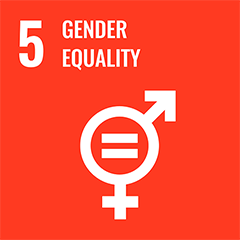
Goal 5
5.5 Ensure women’s full and effective participation and equal opportunities for leadership at all levels of decision making
Our Contribution
We want to empower women to work with Compass Group. For us, this means investing in our female colleagues through development and training schemes, as well as encouraging women-led suppliers. We are also a lead supporter of Women in Hospitality, Travel and Leisure, a cross-industry initiative dedicated to increasing women’s representation in leadership positions.
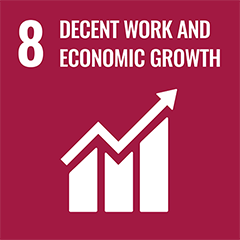
Goal 8
8.5 Achieve full and productive employment and decent work for all women and men, including for young people and persons with disabilities, and equal pay for work of equal value
8.7 Take active measures to eradicate forced labour, end modern slavery and human trafficking and end child labour in all its forms
8.8 Protect labour rights and promote safe and secure working environments for all workers
Our Contribution
Our people are crucial to our business success and our most important asset. We work with local communities across the globe to offer fair and safe employment and promising career opportunities.
To promote work for all, we run diversity and inclusion programmes and action councils and provide skills training to disadvantaged people in our communities. We also work throughout our operations and with our suppliers to address human rights and modern slavery risks, conducting audits and providing training.
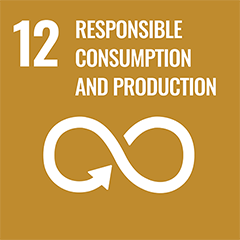
Goal 12
12.3 Halve per capita global food waste by 2030
12.5 Reduce waste generation through prevention, reduction, recycling and reuse
12.6 Adopt sustainable practices and integrate sustainability information into reporting
Our Contribution
We aim to halve our food waste by 2030 and are actively reducing it in every region. We have made good progress in reducing food waste through education, menu planning and waste management systems.
Digital platforms like Waste Not 2.0 use real-time tracking and dashboard reporting to make our sites more efficient in their production and divert food waste from landfills. We inspire consumers to waste less through communications campaigns and our annual Stop Food Waste Day event. Surplus food is recovered and repurposed by distributing it to food banks and the local community.
We use environmental management systems at client sites, as well as education and toolkits to help reduce waste through prevention, recycling and reuse.
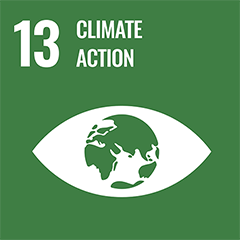
Goal 13
13.3 Improve capacity on climate change mitigation, adaptation and impact reduction
Our Contribution
We are the first international company in the contract catering industry to announce a global commitment to a 2050 net zero emissions economy. We have set ambitious emissions reduction targets over the next decade which have been validated by the Science Based Targets initiative (SBTi), and a further commitment to be carbon neutral worldwide in our own operations (Scope 1 & 2) by 2030.
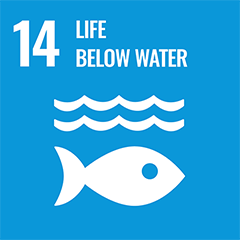
Goal 14
14.1 Prevent and reduce marine pollution
14.2 Enhance the conservation and sustainable use of oceans and their resources
Our Contribution
We respect the critical role that packaging plays in food safety and preserving freshness and avoiding food waste. Our priority is to reduce packaging without compromising this and to work with our packaging suppliers to fast-track sustainable alternatives to single-use and fossil fuel-based plastics. Our European operations continue to adopt the very high standards within the EU Plastics Directive, and we often go above regulatory minimum requirements in our wider markets.
In our top 25 markets, 31% of our fish and seafood is sourced sustainably and we have been a strategic partner of the Global Sustainable Seafood Initiative since 2021.
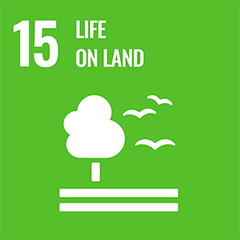
Goal 15
15.1 Ensure the sustainable use of terrestrial and inland freshwater ecosystems
15.2 Promote the implementation of sustainable management of all types of forests, halt deforestation
Our Contribution
One of the actions of our Planet Promise is to deliver a global deforestation-free and land conversion-free supply chain strategy. We will achieve this through the increased use of sustainable palm oil, soy, beef, and timber and paper materials in the products that we source globally and by reviewing and taking action on additional high-risk commodities.
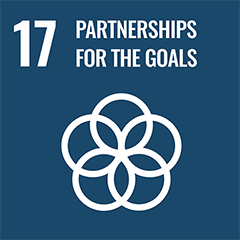
Goal 17
17.16 Enhance the global partnership for sustainable development, complemented by multi stakeholder partnerships that mobilise and share knowledge, expertise, technology and financial resources, to support the achievement of the goals
Our Contribution
We want to help address some of the biggest global challenges today. As a responsible business, we understand the importance of partnering with our clients, suppliers, NGOs and other stakeholders to improve our impact.
We are a member of the World Business Council for Sustainable Development. Our Vice President of Nutrition and Wellness for North America co-chairs the Positive Consumption workstream of WBCSD’s Food and Nature, Food Reform for Sustainability and Health (FReSH) programme which seeks to identify concrete solutions to help deliver healthy and sustainable diets for everyone.
We are one of 25 companies supporting the Terra Carta from The former Prince of Wales’ Sustainable Markets Initiative, and its roadmap to 2030 for businesses to move towards an ambitious and sustainable future.
We continue to be a committed partner of the EAT Forum, a non-profit organisation focused on transformation to protect the planet and its resources.
In 2021, we became a strategic partner of the Global Sustainable Seafood Initiative.
Hungry for more?
© 2025 Compass Group PLC



